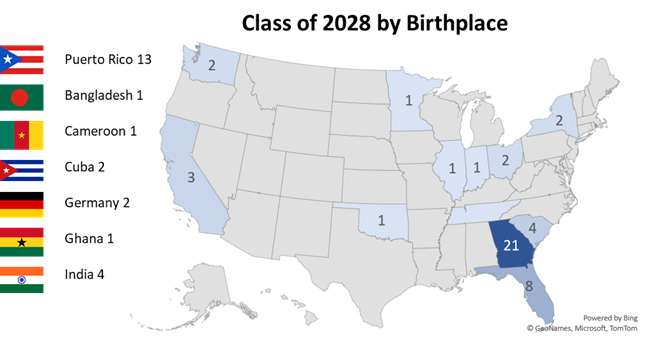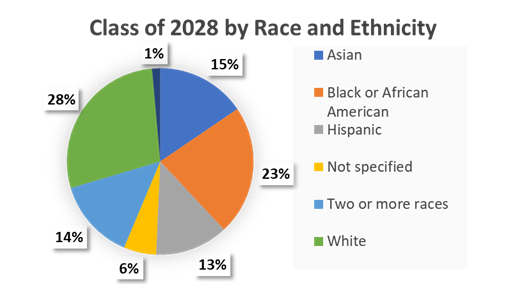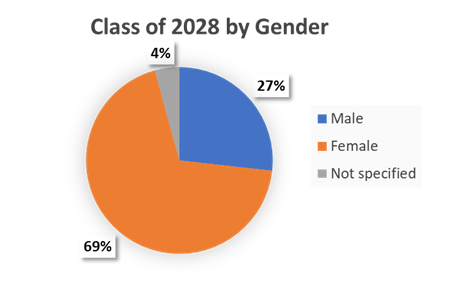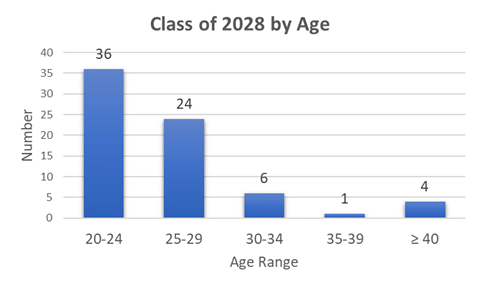Pharmacy

Request Information
Doctor of Pharmacy

South University’s Doctor of Pharmacy (PharmD) is a 3-year degree* designed to provide progressive, quality postgraduate education for the pharmacy profession’s future practitioners**. As you work through the pharmacy degree program, you have the opportunity to gain skills that may help in your career, no matter where you might pursue work as a pharmacist, as you provide service to the community. The Pharmacy degree curriculum helps prepare you to face the challenges of the modern medical field, as well as pharmacists’ evolving role in the field.
Eligible Doctor of Pharmacy students can also concurrently enroll with the Master of Business Administration in Healthcare Administration degree. Students will need a PharmD cumulative GPA of 2.7 or higher and will need to be approved for the concurrent enrollment. This will take place after completing 120 hours of coursework, i.e. after Pharmacy Quarter 4.
South University’s PharmD meets the requirements for all U.S. states with the exception of Arkansas and South Dakota. Professional licensure is required to work as a pharmacist. Please refer to the Professional Licensure section of the University catalog. South University cannot guarantee each graduate will pass the required licensure examinations. Outside agencies control the requirements for taking and passing certification/licensing exams and are subject to change without notice to South University.
The mission of the Pharmacy program is to prepare pharmacists for life-long learning in the practice of collaborative patient-centered care, and promote excellence in teaching, scholarship and service.
*Average time to completion is based on successful, continuous, and full-time enrollment.
**Graduates are required to pass the national certification exam and obtain a state license in order to work in the field. (Exam names vary by program.) Please refer to the State Professional Licensure Determination and National Certification/Licensure section of the University catalog for additional information. South University cannot guarantee each graduate will pass the required licensure examinations. South University does not promise or guarantee licensure, employment or salary amounts.
Accreditation Council for Pharmacy Education
South University's Doctor of Pharmacy program in Savannah, GA, is accredited by the Accreditation Council for Pharmacy Education 190 S LaSalle ST #3000; Chicago, IL 60603; 312-664-3575; www.acpe-accredit.org.
Admissions Calendar
Admissions Calendar 2025-2026
July 2025
Start Accepting Applications for 2026
August 2025 - May 2026
Admissions Interviews
November 1, 2025
Early Application Deadline
May 1, 2026
Application Deadline
June 2026
Admissions Decisions Finalize
June 2026
Classes begin
Admission Requirements
Procedure for Admission to the Doctor of Pharmacy Program
South University School of Pharmacy will accept only applications that are submitted through PharmCAS at:
https://www.pharmcas.org/.
Admission Cycle
Students are accepted into the Doctor of Pharmacy degree program once each June.
General Admission
For optimum consideration during an admissions cycle, prospective students are encouraged to submit a completed application to PharmCAS as early as possible. Direct applications to South University will not be
processed. Admission to the program is competitive and will be granted on a rolling basis for applications postmarked no later than May 1 of each year.
Admission Criteria
Consideration for admission will be based on the applicant's potential for academic and professional achievement and an assessment of written and verbal communication skills, critical thinking skills, integrity, dedication, motivation, character and maturity. To be considered for admission to the Doctor of Pharmacy degree program a prospective student must:
1. Complete or be in the process of completing a minimum of two years of pre-pharmacy course requirements (60 semester hours) at an acceptable accredited collegiate institution. The student must earn a grade of C
(2.0) or better in each prerequisite course. All pre-pharmacy coursework presented in the table below must be completed before matriculation to Doctor of Pharmacy degree program on or before May 25th of the program entrance year.
Pre-pharmacy Requirements*
English Composition/English Literature
3 sem. hrs. (1 sem. or 4.5-qtr. hrs.)
Arts & Humanities/Social & Behavioral Sciences
12 sem. hrs. (4 sem. or 18 qtr. hrs.)
Biology Ic
4 sem. hrs. (1 sem. or 6 qtr. hrs.)
General Chemistry Ic
4 sem. hrs. (1 sem. or 6 qtr. hrs.)
General Chemistry IIc
4 sem. hrs. (1 sem. or 6 qtr. hrs.)
Organic Chemistry Ic
4 sem. hrs. (1 sem. or 6 qtr. hrs.)
Organic Chemistry IIc
4 sem. hrs. (1 sem. or 6 qtr. hrs.)
Human Anatomy/Physiology Ie, f
3 sem hrs. (1 sem or 4.5 qtr. hrs.)
Human Anatomy/Physiology IIe, f
3 sem hrs. (1 sem or 4.5 qtr. hrs.)
College Algebra or higherd
3 sem. hrs. (1 sem. or 5 qtr. hrs.)
Other Math and Science Coursese
16 sem. hrs. (5 sem. or 24 qtr. hrs.)
- Recommended courses in these disciplines include psychology, sociology, anthropology, philosophy, history, literature, art, music, theater, drama, business, education, government, and foreign languages.
- General Biology II, Botany, Zoology, or similar health-foundational biology are also acceptable. These courses must include a laboratory. Applicants with an undergraduate degree or higher in biological science are exempted from Biology I and II pre-requisite requirements.
- These courses must include laboratory. Applicants with an undergraduate degree or higher in Chemistry are exempted from Chemistry I and II pre-requisite requirements.
- Calculus preferred.
- Preferred courses: Microbiology, Statistic, Genetics, Cell Biology, Immunology, Molecular Biology, Biochemistry, or Physics.
Notes:It is recommended that the student take two science courses and at least five courses (a minimum of 17 semester hours of credit) each semester to ensure appropriate preparation for the academic challenge of the School of Pharmacy.
Course substitutions may be considered at the discretion of the Assistant Dean for Admissions of the School of Pharmacy.
- Earn a recommended cumulative grade point average of 2.80 (minimum 2.50) on a 4.0 scale. (A science GPA of 3.0 or better is recommended.)
- Submit a completed Pharmacy application through www.pharmcas.org. Applications mailed directly to South University will not be accepted.
- Submit a minimum of two letters of recommendation directly to PharmCas; however, three letters are preferred.
- Demonstrate the oral and written communication skills required to interact with patients and professional colleagues, and expected of a professional doctoral level student.
- Complete the South University School of Pharmacy's on campus personal interview with members of the Faculty and the Admissions Committee (by invitation only).
- Provide directly to PharmCAS all transcripts. Transcripts for all college coursework must be submitted since academic performance for all college coursework undertaken by the student will be evaluated.
- Applicants for whom English is a Second Language must submit to Pharm CAS a minimum TOEFL-iBT score of 79-80 to be considered for the program or completes (with a passing grade in all courses) a minimum of two (2) academic terms at a regionally or nationally accredited U.S. post-secondary institution in which instruction is delivered primarily in English. Other equivalent/alternative English Language Programs/Tests are provided at https://catalog.southuniversity.edu/english-language-proficiency.
- International students eligible for or with a current F1 Visa are eligible to apply for admission. It is preferred to have completed 30 semester hours at a regionally accredited college/university in the United States. Required pre-requisite Course work completed at international (non-US) institutions is accepted if it meets the admission requirements. Applicants who have attended international institutions must order a foreign transcript evaluation from World Education Services (WES) through the PharmCAS application. The evaluation report must include institution information, course title, credit hours, and grades. Credit will be given only for applicable courses that can be used to fulfill prerequisites, and they may be required to complete additional courses prior to enrollment in order to fulfill any remaining prerequisites.
Advanced Standing Admission Policy for International Pharmacy Degree Holders
Scope:
This policy applies to applicants who:
- Hold a conferred Bachelor, Master, or Doctoral degree in Pharmacy from an accredited international program.
- Seek PharmD program advanced standing based on demonstrated equivalence of prior coursework.
- Submit applications for admission into the PharmD program via PharmCAS.
Exclusion:
- Degrees in non‑pharmacy disciplines.
- Applicants lacking sufficient documentation or whose prior learning cannot be mapped to core curriculum requirements.
- Applicants who have previously or are currently attending an ACPE-accredited pharmacy program.
Eligibility Requirements
To be considered for advanced standing admission, applicants must:
- Hold the specified international pharmacy degree completed within the past five years (waivers may be granted with ongoing professional practice).
- Submit applications for admission into the PharmD program via PharmCAS
- Provide a credential evaluation from World Education Services (WES) or another credential evaluation agency recognized by PharmCAS.
- Demonstrate a minimum cumulative GPA equivalent to 3.0 (U.S. scale and a minimum grade of ‘C’ or equivalent in all core pharmacy subjects.
- Provide English language proficiency evidence via TOEFL (79-80), IELTS (≥ 6.5), duolingo (≥ 105). Other English Language Proficiency Programs/Tests are outlined at catalog.southuniversity.edu/english-language-proficiency.
Course Equivalency Evaluation Process
- The School of Pharmacy Office of Admissions confirms completeness of all required documentation, including transcripts, syllabi, credential evaluation, accreditation evidence, and English proficiency scores.
- If needed, subject matter experts will assess course-by-course equivalencies.
- Equivalency Rubric Outcomes: Courses are marked as equivalent, partially equivalent, or not equivalent.
Advanced standing with direct entry into Quarter 3 is granted when the following courses are assessed as equivalent or upon approval by the School of Pharmacy.
PHA3113 Pathophysiology I (5)
PHA3127 Pharmaceutical Calculations (3)
PHA3129 Intro. to Medicinal Chemistry (3)
PHA3114 Pathophysiology II (4)
PHA3134 Biochemistry (4)
PHA3146 Pharmaceutics I (3)
PHA3246 Pharmaceutics II (2)
- Advanced standing will consist of a block transfer of 24 credits.
Required Documentation
Applicants must submit:
- Official transcripts from all post-secondary institutions,
- Credential evaluation from World Education Services (WES), or another credential evaluation agency recognized by PharmCAS.
- Detailed course syllabi or course descriptions for all pharmacy-related coursework,
- Official documentation verifying institutional accreditation status,
- Official English proficiency test scores meeting minimum requirements, and
- Documentation of relevant professional or experiential training, if applicable.
Conditions & Limitations
- Cohort admission size is limited. Advanced standing acceptance does not guarantee placement in a specific cohort.
- All students must satisfy the South University and PharmD curriculum, policies, and graduation requirements.
Exceptions to the Minimum CGPA
Applicants with CGPAs lower than the stated program minimum may be considered for admission with significant evidence of academic and professional potential demonstrated by the career and/or personal accomplishments indicated in the career résumé (including a personal statement of academic and professional goals), and academic or professional letters of recommendation. Exceptions must be recommended by the School of Pharmacy Assistant Dean for Admissions, Chair of the Admissions Committee, or School Dean.
Technical Standards for Doctor of Pharmacy Degree Program Admission
The educational mission of the South University School of Pharmacy is to prepare pharmacists for life-long learning in the practice of collaborative patient-centered care, and promote excellence in teaching, scholarship and service.
Students admitted to the Doctor of Pharmacy degree program must also meet the technical standards for admissions. These technical standards outline the essential functions that candidates for the Doctor of Pharmacy degree must be able to perform. These essential functions reside in the following categories: Observation, Communication,
Sensory/Motor, Intellectual, and Behavior/Social. However, it is recognized that degrees of ability vary among individuals. The South University School of Pharmacy is committed to supporting its students by any reasonable means to complete the course of study leading to the Doctor of Pharmacy degree.
- Observation: A candidate must be able to observe demonstrations and experiments in the basic sciences, including, but not limited to, physiological and pharmacological demonstrations in animals, evaluation of microbiological cultures, and microscopic studies of microorganisms and tissues in normal and pathological states. A candidate must be able to observe a patient accurately at a distance and close at hand. In detail, observation necessitates the functional use of the sense of vision and other sensory modalities.
- Communication: A candidate must be able to communicate effectively and sensitively with patients. The focus of this communication is to elicit information, describe changes in mood, activity and posture, and perceive nonverbal communication. Communication includes speech, reading, writing, and computer literacy. A candidate must be able to communicate effectively and efficiently in oral and written forms with all members of the healthcare team in a timely manner.
- Sensory/Motor: A candidate must have sufficient motor function to elicit information from patients by physically touching patients, e.g. assessing range of motion of a joint, taking blood pressure readings, taking a pulse reading. A candidate must be able to execute motor movements to provide general care and emergency treatments to patients, e.g. first aid treatments, cardiopulmonary resuscitation (CPR). A candidate must be able to execute motor movements required in the compounding of medications inclusive of using techniques for preparing sterile solutions, e.g., parenteral or ophthalmic solutions. Such actions require coordination of both gross and fine muscular movements, equilibrium, and functional use of the senses of touch and vision.
- Intellectual(Conceptual, Integrative, and Quantitative Abilities): A candidate must have the ability to measure, calculate, reason, and analyze. A candidate must be able to synthesize and apply complex information in a timely manner. A candidate must be fully alert and attentive at all times in clinical settings.
- Behavioral/Social Attributes: A candidate must possess the emotional health required for full utilization of his or her intellectual abilities, the exercise of good judgment, and the prompt completion of all responsibilities attendant to the interaction with patients. A candidate must possess the ability to develop mature, sensitive, and effective relationships with patients. A candidate must be able to tolerate physically taxing workloads and to function effectively under stress. A candidate must be able to adapt to changing environments, to display flexibility and learn to function in the face of uncertainties inherent in the clinical problems of many patients. A candidate must possess compassion, integrity, interpersonal skills, and motivation to excel in pharmacy practice.
Requirements for Matriculation Applicants who have been accepted into the Doctor of Pharmacy program must fulfill the following before they can officially enter the program:
- Remit the $500 acceptance fee by the date designated in the acceptance agreement. The entire acceptance fee is credited to the first quarter's tuition.
- Submit a college transcript after each term completed following acceptance.
- Submit self-certification of high school graduation or GED completion.
- Submit proof of immunization or for immunity to Measles/Mumps/Rubella (MMR), Varicella (Chickenpox), Tetanus/Diphtheria, and Hepatitis B. In addition, students must complete the annual Tuberculin Test (PPD). An Immunization Clearance Form provided as part of the acceptance package must be completed and returned along with other immunization documentation.
- Present a Basic Adult Life Support certificate.
- Submit proof of medical insurance coverage.
- Satisfactorily complete a Background check.
Complete additional coursework if required by the Admissions Committee and submit additional documents as requested by the Office of Admissions.
Failure to comply with these requirements may result in forfeiture of your acceptance.
Laptop Computer Requirement
Laptop computers are required for use in the multimedia classroom. All students are required to have a laptop computer with Internet access. Purchase of a new laptop is not recommended until just before matriculation into the program so that performance vs. cost can be optimized. Students may buy any laptop that meets the minimum computer specifications which are set by the school in the spring of each year.
For additional admissions information please see the admissions section here.
Career Outlook
These are some of the career options* you can explore when you have earned your degree:
- Pharmacist
- Pharmacology Research
*Graduates are required to pass the national certification exam and obtain a state license in order to work in the field. (Exam names vary by program.) Please refer to the State Professional Licensure Determination and National Certification/Licensure section of the University catalog for additional information. South University cannot guarantee each graduate will pass the required licensure examinations. South University does not promise or guarantee licensure, employment or salary amounts.
Curriculum
These courses are elective courses that are available for student to take in fulfillment of the 9 hours of electives needed to fulfill the hour requirements for graduation (219) from the School of Pharmacy. They can be chosen by the student when offered. Note electives are based on faculty expertise and availability. As new faculty are hired additional electives may be offered.
These courses are elective courses that are available for student to take in fulfillment of the 9 hours of electives needed to fulfill the hour requirements for graduation (219) from the School of Pharmacy. They can be chosen by the student when offered. Note electives are based on faculty expertise and availability. As new faculty are hired additional electives may be offered.
These courses are elective courses that are available for student to take in fulfillment of the 9 hours of electives needed to fulfill the hour requirements for graduation (219) from the School of Pharmacy. They can be chosen by the student when offered. Note electives are based on faculty expertise and availability. As new faculty are hired additional electives may be offered.
Students are required to take three of the following:
One additional elective is available and will add one credit to the program for a total of 220 credit hours.
Note(s):
*Students are required to complete the PHA4239 Topics in Pharmaceutical Calculations as one of their elective choices if a final course grade of 75% or lower is achieved in PHA3127 Pharmaceutical Calculations.
**Students are required to take 7 of the 12 listed rotations (56 credit hours) along with the 3 Essential Knowledge of Practice Review courses (10.5 credit hours) for a total of 65 required credit hours. Students will
take PHA6525, PHA6526, PHA6527, PHA6528, PHA6503, PHA6504, PHA6505 and any combination of three of the following: PHA6529, PHA6530, PHA6531, PHA6532, PHA6533, PHA6534, PHA6535, PHA6536 and PHA6537. In addition, Grand Rounds (PHA6339) is an optional elective that students may elect to take in one of the last three quarters of the curriculum and will be scheduled at the discretion of the School of Pharmacy.
Prerequisites
All pre-pharmacy coursework must be completed prior to matriculation to the South University Doctor of Pharmacy program on or before May 25th of the program entrance year. The student must earn a grade of C (2.0) or better in each prerequisite course.
Prerequisite Requirements
Course Title | Semester Hours |
English Composition | 3 sem. hrs. / 4.5 qtr. hrs. |
Non-Science/Math Electives (a) | 12 sem. hrs. / 18 qtr. hrs. |
| General Biology I (b) | 4 sem. hrs. / 6 qtr. hrs. |
| Anatomy and Physiology I and II | 6 sem. hrs. / 9 qtr. hrs. |
General Chemistry I and II (c) | 8 sem. hrs. / 12 qtr. hrs. |
Organic Chemistry I and II (c) | 8 sem. hrs. / 12 qtr. hrs. |
| College Algebra I or Higher (d) | 3 sem. hrs. / 4.5 qtr. hrs. |
| Science/Math Electives (e) | 16 sem. hrs. / 24 qtr. hrs. |
TOTAL | 60 sem. hours / 90 qtr hours |
Comments on above:
a. Non-Science/Math Electives must fall in the Humanities, Arts or Behavioral/Social Sciences.
b. General Biology II, Botany, Zoology or similar health-foundational biology courses are acceptable. These courses must include a lab. Applicants with an undergraduate degree or higher in biological science are exempted from Biology I prerequisite requirements.
c. These courses must include a laboratory. Applicants with an undergraduate degree or higher in Chemistry are exempt from Chemistry I and II prerequisite requirements.
d. Calculus is preferred.
e. Preferred courses include: Microbiology, Molecular or Cell Biology, Genetics, Immunology, Statistics, Biochemistry or Physics.
Program Quality Indicators
South University, Savannah School of Pharmacy: Program Quality Indicators
| Program Outcomes by Calendar Year | 2021 | 2022 | 2023 | 2024 | 2025 |
Alumni Involvement: | NR | NR | 93 | 118 | 125 |
Residency Placement | - | - | - | 59% | 71% |
| – All Alumni | 67% | 63% | 67% | 56% | 62% |
Residency Placement includes first year ASHP residency match rates(phase I and phase II combined)
| Program Outcomes by Graduation Class | 2021 | 2022 | 2023 | 2024 | 2025 |
Licensure Pass Rates - NAPLEX | 78% | 57% | 64% | 59% | 81% |
Graduation Rates | 83% | 80% | 79% | 73% | TBD JUN 2026 |
Graduating Student Self-Assessment | 95% | 94% | 75% | 100% | 90% |
| Year Admitted | 2018 | 2019 | 2020 | 2021 | 2022 |
NAPLEX Pass Rates are published annually at https://nabp.pharmacy/news-resources/data-research/
| Meet the Class of 2028 | ||
 | ||
 | ||
 |  |  |
Abbreviations
AACP: American Association of Colleges of Pharmacy
ASHP: American Society of Health-System Pharmacists
NAPLEX: North American Pharmacist Licensure Examination
NR: Not reported. This is a new indicator not previously reported.
TBD: To be determined. This indicator is currently being gathered.
Outcomes
Upon completion of the program, students will be able to:
- 1.1: Apply principles of chemistry, biochemistry, and pharmacology to medication safety and efficacy. 1.2: Apply the principles of pharmaceutical science and calculations to drug design and drug delivery systems. 1.3: Apply pharmacokinetic, pharmacodynamic, and pharmacogenomic principles to therapeutic strategies. 1.4: Compare and contrast the physiology and biochemistry of normal body system function to that of abnormal function. 1.5: Critically analyze literature related to drugs and diseases to enhance clinical decision-making.
- 2.1: Collect subjective and objective patient information to identify medication and medical-related problems. 2.2: Assess and analyze information to determine effectiveness of therapy, identify problems, and prioritize needs to achieve optimal patient care. 2.3: Design an individual patient-centered care plan in collaboration with the patient and other health care professionals that is evidence-based and cost-effective to maximize desired effects. 2.4: Implement the care plan in collaboration with the patient, caregiver, and other healthcare professionals. 2.5: Follow-up and monitor the care plan to evaluate its effectiveness and modify the plan as needed.
- 3.1: Demonstrate accurate, safe, and time-sensitive preparation, dispensing, and administration of pharmaceuticals. 3.2: Manage pharmacy resources to optimize pharmacotherapy outcomes for individual patients. 3.3: Educate patients and health care providers.
- 4.1: Demonstrate skills needed to participate in, or provide, preventive services. 4.2: Apply research processes to ensure informed decision-making.
- 5.1 Examine personal attributes that may enhance or limit personal and professional growth. 5.2 Demonstrate responsibility for creating and achieving shared goals, regardless of organizational position. 5.3 Engage in innovative and creative methods to accomplish goals. 5.4 Demonstrate professional citizenship in the delivery of patient care, distribution of medications, and the promotion of wellness and disease prevention. 5.5 Advocate for the profession and patients. 5.6 Effectively communicate verbally and nonverbally when interacting with an individual, group, or organization. 5.7 Demonstrate problem-solving skills including the ability to think critically, exercise professional judgment, and articulate and defend a decision
5.8 Exhibit behaviors and values that are consistent with the trust bestowed to the profession by patients, other healthcare providers, and society
5.9 Demonstrate knowledge of and compliance with federal and state laws/regulations governing the practice of pharmacy - 6.1: Demonstrate the ability to create a business plan and/or strategy to launch a new service, product, or business line or improve an existing one. 6.2: Demonstrate the ability to apply performance improvement strategies to monitor the quality of a service, product, or business. 6.3: Demonstrate the ability to apply business and financial management tools to monitor the performance of a service, product, or business.
Handbooks
School of Pharmacy Handbooks
Download the School of Pharmacy Student Handbook below
Download the Experiential Education handbooks for South University preceptors below.
- 2023-2024 APPE Handbook (PDF)
- 2023-2024 IPPE Handbook (PDF)
Faculty & Staff
Meet the Savannah Pharmacy Team!

Ahmed Abdulrahman, PharmD
Assistant Professor of Pharmacy Practice

Adegoke O Adeniji, RPh Ph.D.
Associate Professor and Interim Dean

Ayodeji, A. Agbowuro, Ph.D.
Assistant Professor

Angelique M. Pereira, PharmD, BCPS
Assistant Professor

Ajay N. Singh, Ph.D.
Assistant Dean of Admissions

Alessandra Tavoloni, M.Ed.
Assistant Dean of Student Affairs

Andrew P. Ten Eick, PharmD
Associate Professor

Christopher M. Brackett, PhD
Assistant Professor

Daya S. Gupta, PhD
Assistant Professor of Pharmaceutical Sciences

David N. Ombengi, PharmD, MBA, MPH
Chair and Associate Professor

Ellie P. Nguyen, PhD
Associate Professor

Dr. Gopalakrishna Pillai, M. Pharm, MSc, PhD
Professor. Department of Pharmaceutical Sciences

Jamessa Cummings, PharmD, MMHC
Assistant Professor of Pharmacy Practice

James W. Fetterman, Jr., PharmD, BPharm., B.S.
Assistant Dean of Experiential Education and Professor of Pharmacy Practice

Jaclyn M. Jordan, BBA
Director of Admissions

John P. Kennedy, BS Pharm, PhD
Professor

Jennifer Parsons, M.Ed., M.A
Registrar and Budget Manager

John M. Carter
Professor

Kaitlyn Champion, PharmD, BCSCP
Assistant Professor of Pharmacy Practice

Kathleen A. Snella, PharmD, FCCP
Associate Dean of Academic Affairs

Karyn I. Cotta, Ph.D.
Professor

Lilia I. Macías, PhD, MPH
Associate Professor

Maha Coucha, B.Pharm., Ph.D.
Associate Professor

Mackenzi L. Meier, PharmD, BCPS, BCACP
Assistant Professor and Vice Chair of Pharmacy Practice

Melissa R. Osborne, PharmD
Assistant Professor of Pharmacy Practice

Patrick A. Barry, PharmD
Assistant Professor

Paapa Mensah-Kane, PhD, MPhil, BPharm
Assistant Professor

Sarah L. Lopez, PharmD, BCPS
Assistant Professor

Stephen Henry McCall, PharmD, BCPS, BCCCP
Assistant Professor of Pharmacy Practice

Victor S Fishman, BA, CPhT, MS
Clinical Training Coordinator

Wei Deng, DBA/MD/MPH
Director of Assessment

Zachary Holmes, PharmD, BCPS
Assistant Professor of Pharmacy Practice
What's New
Latest News and Blogs

Jul 03, 2024
Public Health Concepts: Understanding Epidemiology
Discover aspects of epidemiology and how it relates to public health and healthcare.

Feb 03, 2026
Anesthesiologist Assistant Programs: What Makes a CAA Program right for you?
If you want to become a Certified Anesthesiologist Assistant (CAA), choosing a school is a big decision. Find out what to look for in a CAA program.

Jan 28, 2026
PTA Alumni Spotlight: Helping Patients Get Better
Discover how Brandon Vixamar found South's PTA degree and how it helped him enter into a career of caring and compassion.

Jan 27, 2026
AI in Legal Industry Careers: What Paralegals Need to Know
See what paralegals should know about using AI for law firms, including the top benefits and potential risks of AI legal services tools.

Jan 14, 2026
MSN Alumni Spotlight: Growing a 20-Year Career in Nursing
Meet LaTorya Armour and read about her accomplishment of earning an MSN after 20 years serving in healthcare.

Jan 13, 2026
How to Prepare and Plan for Academic Success in 2026
Working to get your degree in 2026? See how to make this year your most successful yet as you work toward your academic, career, and personal goals.
Fill out the form and a representative will contact you today to better understand your academic goals plus answer any questions you may have.
Campuses offer flexible learning formats* including: on-campus, virtual instructions, and online courses.
*Clinical, practicum, and externship requirements exist in certain programs and require field experiences. Learning formats may not be flexible.
Success! Your request was submitted. We'll be in touch soon!
In the meantime, you can view some of our FAQs.
If you want to talk to an admissions representative ASAP, please contact us at (888) 444-3404.
Success Stories
We're committed to helping our graduates make impact in their professional and personal lives. We applaud our pharmacy alumni and the difference they make. Check out what our graduates have to say.






